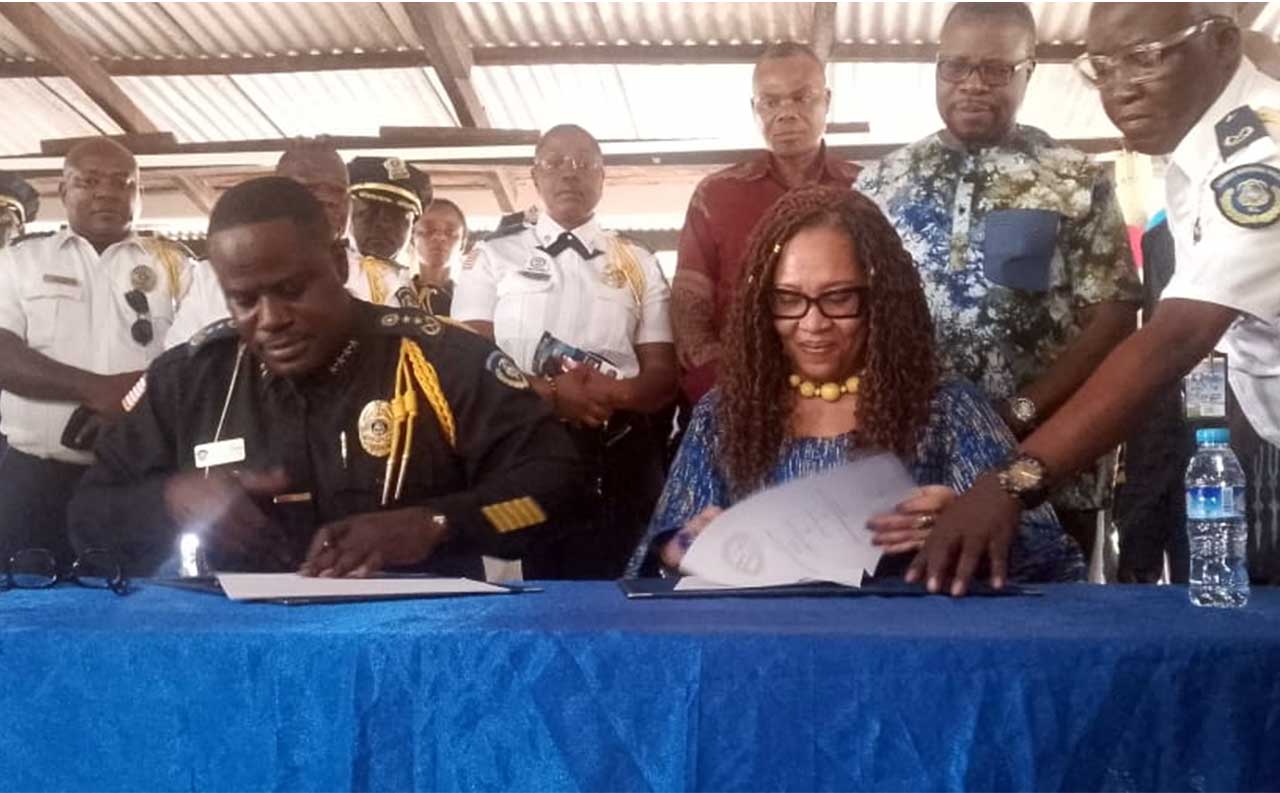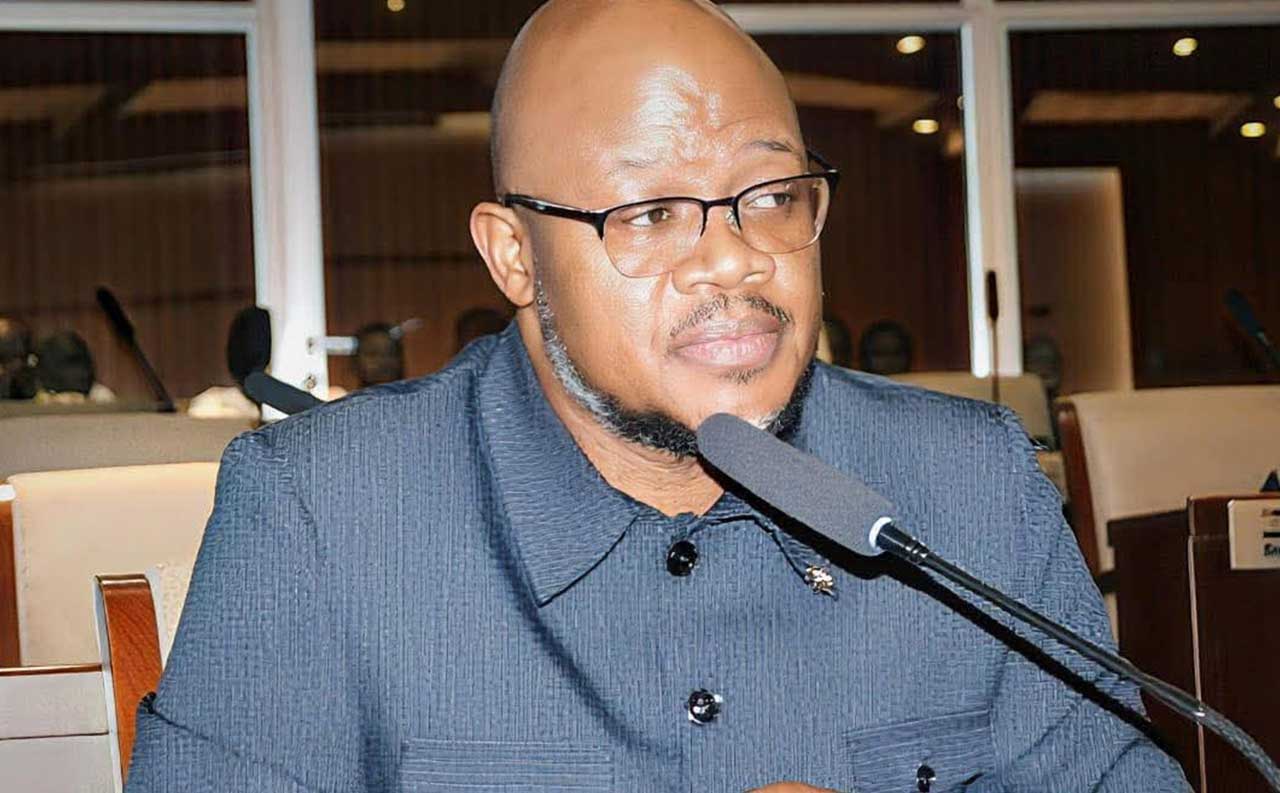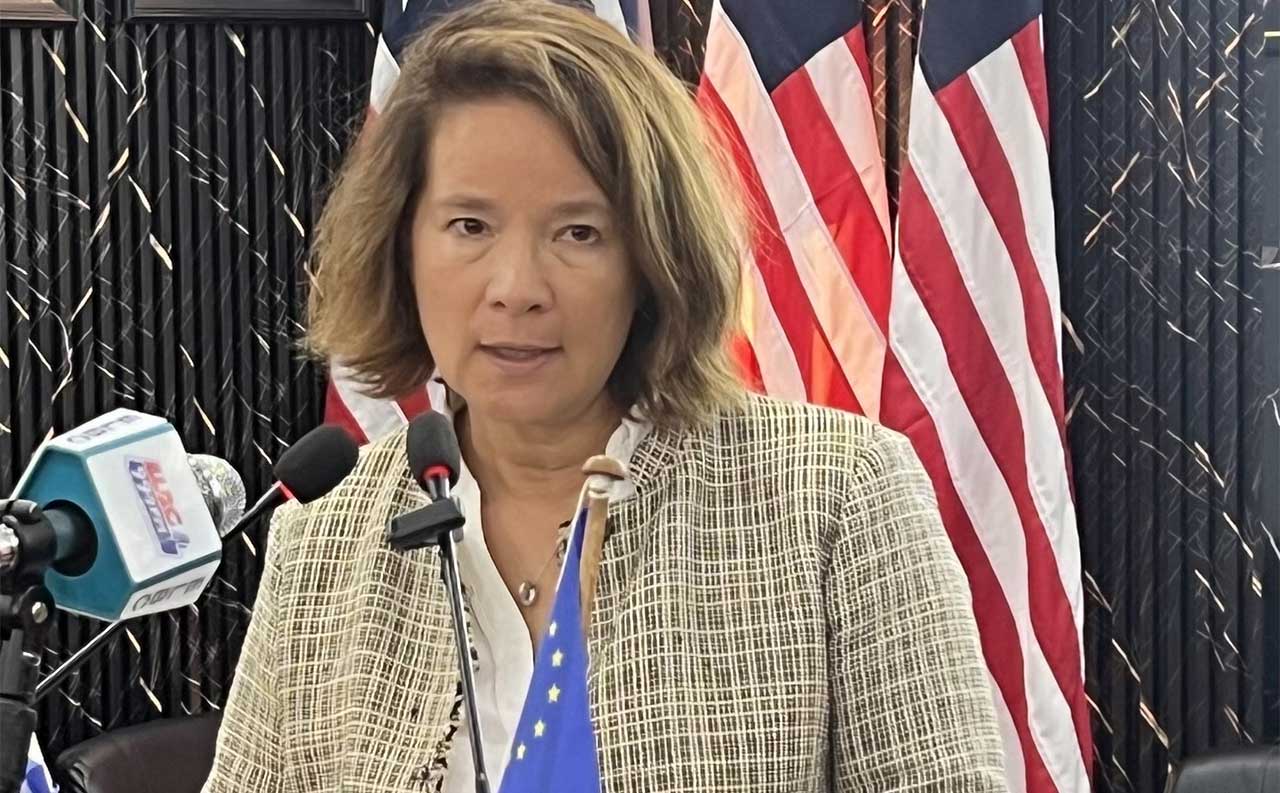In a bold move to reform and revitalize Liberia’s security sector, the Liberia National Police (LNP) and Cuttington University have officially launched a transformative partnership focused on capacity development and leadership succession. This initiative aims to create a youth-led, educated security force for national transformation.
The formal launch on Wednesday, May 7, 2025, in Saucococo, Bong County, was marked by the signing of a Memorandum of Understanding (MoU) between the two institutions. Keynote speaker Colonel Gregory Coleman, the Inspector General of the Liberia National Police, described the program as a pivotal moment for both the country’s police force and broader public service. He reaffirmed the LNP’s commitment to peace, order, and the rule of law, emphasizing the importance of investing in the security sector.
“This is not merely a recruitment exercise; it is a revolution aimed at equipping young Liberians with the education, training, and leadership skills necessary to serve and protect,” said Colonel Coleman. “Of the entire public service workforce, only 361 individuals are between the ages of 18 and 25—just 0.86%. This program is designed to change that.”
The LNP-Cuttington Capacity Development Program seeks to empower young professionals with academic training, technical skills, and practical experience in law enforcement and public service. It is part of a broader national strategy to close the generational gap in governance and strengthen institutional resilience.
Colonel Coleman highlighted that the initiative aligns with President Joseph Nyuma Boakai’s “ARREST Agenda” and represents a clear push toward sustainable transformation and public sector innovation. “This partnership is about the future of Liberia,” he declared. “It starts with the police but will extend across the security sector and beyond.”
He noted that the MoU symbolizes a new chapter in the history of the LNP, characterized by vision, renewal, and strategic partnerships. The launch of the LNP-Cuttington University Capacity Development Program is not just a recruitment effort; it is a significant step toward building a professional, educated, and youth-driven police force.
Colonel Coleman emphasized that this partnership with Cuttington University demonstrates how public institutions can collaborate with academia to address manpower challenges and create lasting national impact. “This program is a prototype we intend to replicate across other regions and universities in Liberia,” he stated.
Furthermore, Inspector General Coleman expressed his belief in the necessity for policing to evolve, with education, ethics, and empowerment being its foundation. “To all the young men and women who will follow this path: You are the future of the LNP and the guardians of peace,” he encouraged.
For her part, Deputy Inspector General of Police for Training and Manpower Development, Sadatu L.M. Reeves, stated that the ceremony is not merely about signing an MoU or marking a specific event; it represents a national turning point—a time when the LNP aligns education with service, intellect with discipline, and youth with purpose.
Col. Reeves explained that the program addresses one of the LNP’s most urgent internal challenges: “our aging and unevenly trained workforce.” The initiative integrates formal university education with structured police science and foundational training at the Police Training Academy. Students admitted into the program will earn degrees in criminal justice, conflict management, or related fields while receiving paramilitary instruction and mentorship from LNP instructors.
She listed the program’s key components as: dual enrollment in academic and law enforcement training; community service projects integrated into the academic curriculum; direct recruitment pipelines for graduates into the LNP, alongside career tracking and advancement to ensure that the LNP builds a generation of officers who are intellectually sharp, ethically sound, and operationally prepared.
“The aftermath of Liberia’s civil conflict severely weakened our security institutions, and we continue to feel the effects of that loss,” she reflected. According to her, many seasoned officers are nearing retirement, and logistics and geography have limited the ability to recruit at scale.
This partnership is the first of several that the LNP aims to establish with universities across Liberia. It will help reduce reliance on Monrovia for police training and recruitment, tap into local talent, and provide opportunities where young people live, thus upgrading police development within Liberia’s national education system.
Through such partnerships, the LNP is working to create a locally trained, nationally deployed police service with a consistent and decentralized pipeline of professionally trained recruits.



